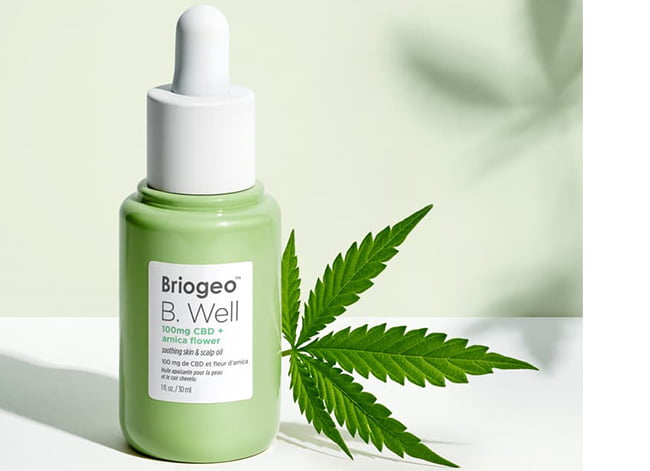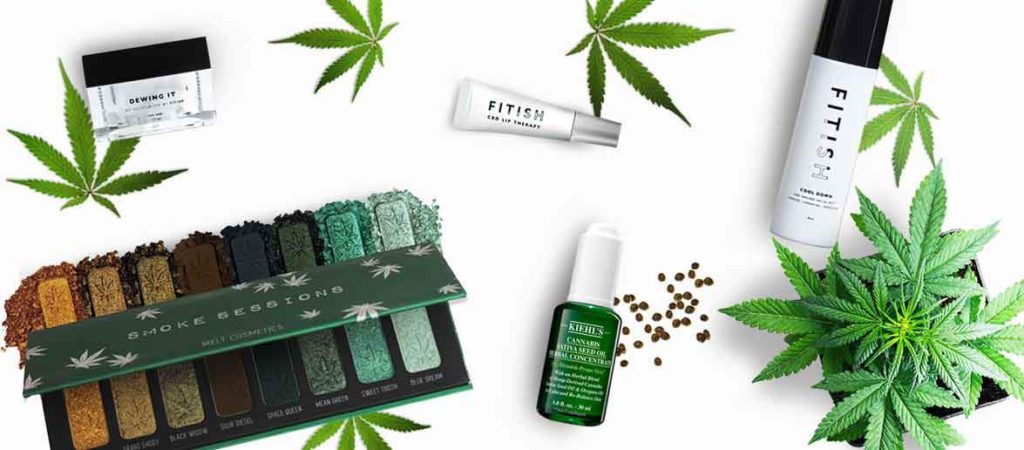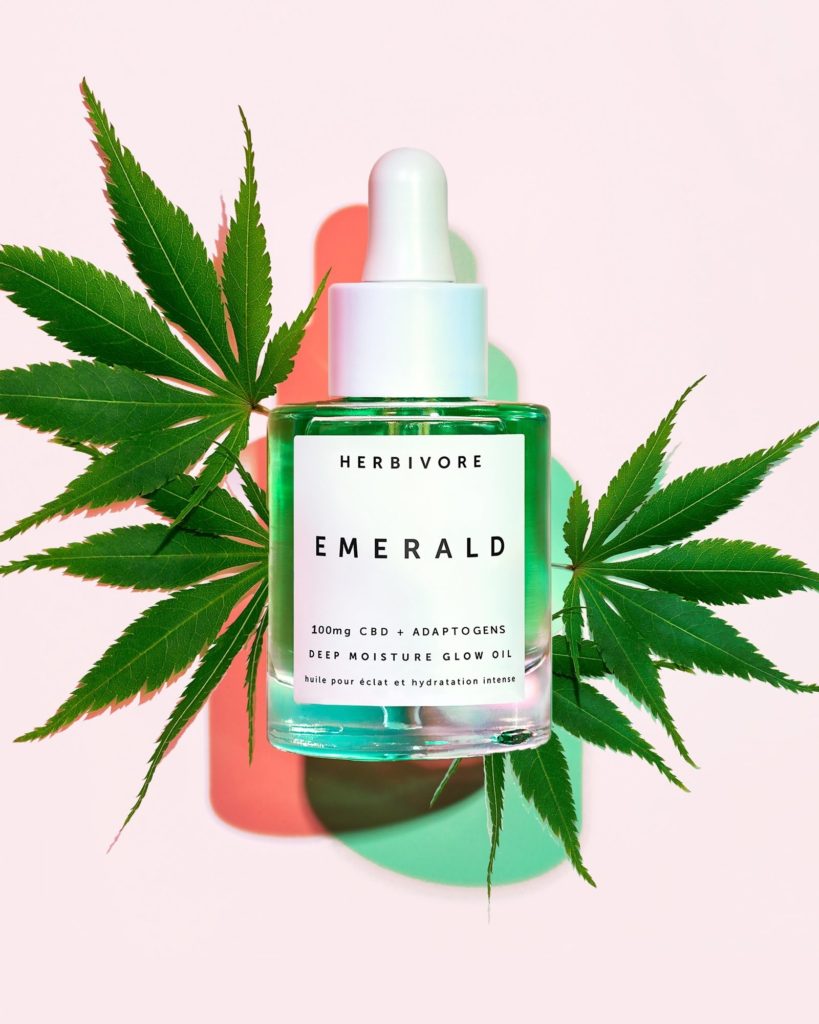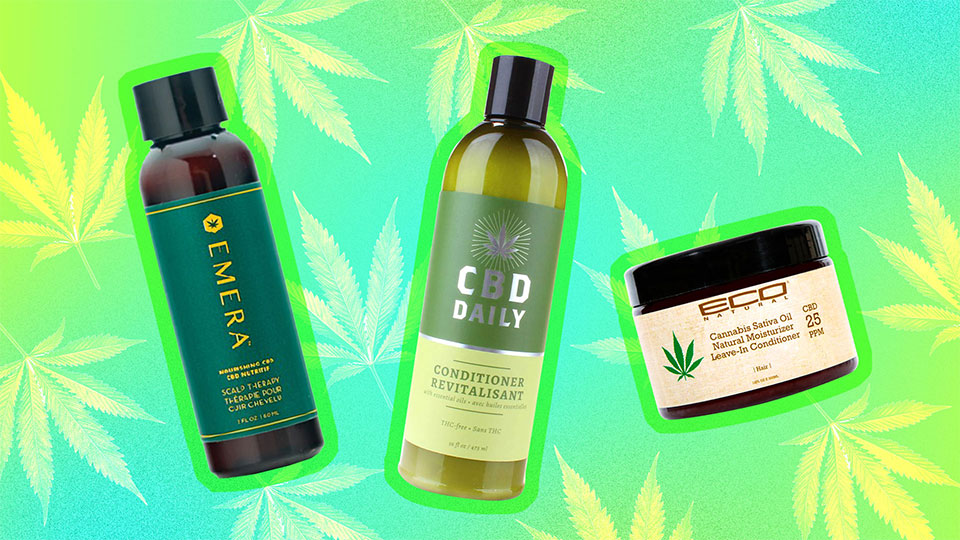My coworker keeps a bottle at her desk. My friend’s roommate has a gummy every day. I went shopping and an array of infused lotions were on display at the checkout counter. It seems inescapable these days.

CBD oil is a compound found in hemp plants, and does not get you high even though it is cannabis-derived (Grinspoon, 2018) – and despite my tongue-in-cheek headline. Since the legalization of cannabis in most of the United States, the industry has grown immensely; the CBD market is expected to reach a value of just under 2 billion by 2025 (Grant View Research, 2019) and so naturally, has made its way into beauty products, too.

Just this morning, though, mass beauty retailer Sephora announced that they will be setting up criteria for CBD-infused products to ensure it works, with four standards that all must be met in order to qualify. First, inclusion of only full- or broad-spectrum CBD from U.S. grown hemp. Second, the CBD must be tested a minimum of 3 times for quality and purity. Third, a Certificate of Analysis (COA) that verifies the CBD content matches any label claims must be available upon request. Lastly, all products must meet the Clean at Sephora standards, which is a separate set of qualifications that ensures makeup products are free of parabens, sulfates, and other harmful toxins (Hong, 2020).

Vice President of Skincare Merchandising at Sephora, Cindy Deily, stated, “Search for CBD on Sephora.com has increased over 1000 times since 2018, so there’s clearly client interest in these kind of products. As customers are looking to navigate this growing category, we saw the need to provide transparency and quality assurance,” (2020).
This brings up a valid point – the reality is that since the legalization of CBD products, there is an outpouring of merchandise available without any real regulation. CEO of Sephora, Christopher Gavigan, stated, “Brands need retailers to hold them accountable for their CBD and testing methods. There is currently no government regulation to show or prove what are contaminated or efficacious ingredients,” (2020).

By Sephora making a conscious effort to regulate themselves, they are establishing a trust with their consumers, and are setting the standard for other beauty retailers – such as Ulta Beauty, HSN, and even Target – to follow suit. I think it was an excellent way to get at the forefront of an issue in the industry, plus a way for Sephora to get good publicity. I’m suspecting that their retail customer base will also grow now that people can feel trusting of the CBD-based products being sold at Sephora. However, it also makes it harder for certain products to pass, including by brands already in Sephora stores who perhaps now won’t be able to sell specific items. Do you think other retailerswill follow suit with standardization of CBD products, or will corporate selfishness come before CBD regulation?
-Alexis
References
Grinspoon, P. (2019, August 17). Cannabidiol (CBD) – what we know and what we don’t. Harvard Health Publishing. Retrieved from https://www.health.harvard.edu/blog/cannabidiol-cbd-what-we-know-and-what-we-dont-2018082414476.
Grand View Research. (2019, August). CBD skin care market size, share & trends analysis by source (hemp, marijuana), by type (oils, creams & moisturizers, masks & serums, cleaners), by region, and by segment forecasts, 2019 – 2025. Grand View Research. Retrieved from https://www.grandviewresearch.com/industry-analysis/cbd-skin-care-market?utm_source=prnewswire.com&utm_medium=referral&utm_campaign=PRN_Aug29_cbdskincare_CMFE_RD1&utm_content=Content.
Hong, H. (2020, February 26). Sephora announces new CBD standards for all of its products. Real Simple. Retrieved from https://www.realsimple.com/beauty-fashion/skincare/sephora-cbd-standards.

8 Responses to Sephora’s High Beauty Standards